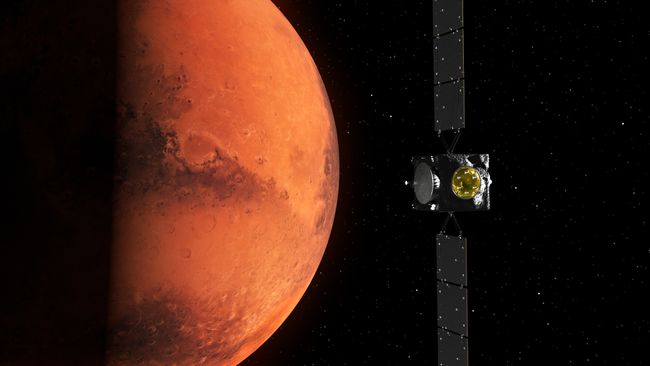Flying past Mars will speed up Hera's arrival at the target and save fuel
Sometimes even the most ambitious missions have time for important «stops» on the way to the final goal. This is exactly the opportunity that the European Space Agency's (ESA) Hera mission had as it approached the binary Didymos asteroid system, scheduled for October.
The main goal of «Hera» will be studying the surface of the smaller asteroid Dimorphos. This object has already become famous by taking part in a unique NASA experiment on planetary protection. During the DART mission, the probe crashed into Dimorphos to test the possibility of changing the trajectory of potentially Earth-threatening asteroids. The test results exceeded all expectations, demonstrating the effectiveness of this approach.
However, before reaching Didymos, «Hera» will make an important stop on its approach to Mars. In March next year, the Red Planet will be right on the path of the spacecraft, which will allow it to take advantage of the opportunity to adjust course and significantly save fuel. According to flight dynamics engineer Pablo Muñoz, some of the fuel saved will be used to speed up the final leg of the journey, allowing the mission team to maximize the scientific impact of the Didymos system.
However, Mars will give the mission team more than just a push in the right direction. Flying just 6,000 kilometers from Mars and about 1,000 kilometers from its moon Deimos, the spacecraft will be able to use its scientific instruments. The main camera, HyperScout-H hyperspectral scanner and infrared thermal imager will allow scientists to look into the depths of the Martian atmosphere and the secrets of Deimos itself.
«This will give us another chance to calibrate our instruments and perhaps make some scientific discoveries,— notes Michael Kuppers, project scientist. Of particular interest to researchers is the study of Deimos, which is planned to be carried out in collaboration with other active Mars missions, including ESA's Mars Express and ExoMars Trace Gas Orbiter and the UAE Emirates Mars Mission.
Deimos data will also be used to plan JAXA's upcoming Mars Exploration Mission (MMX), scheduled to launch in 2026.

